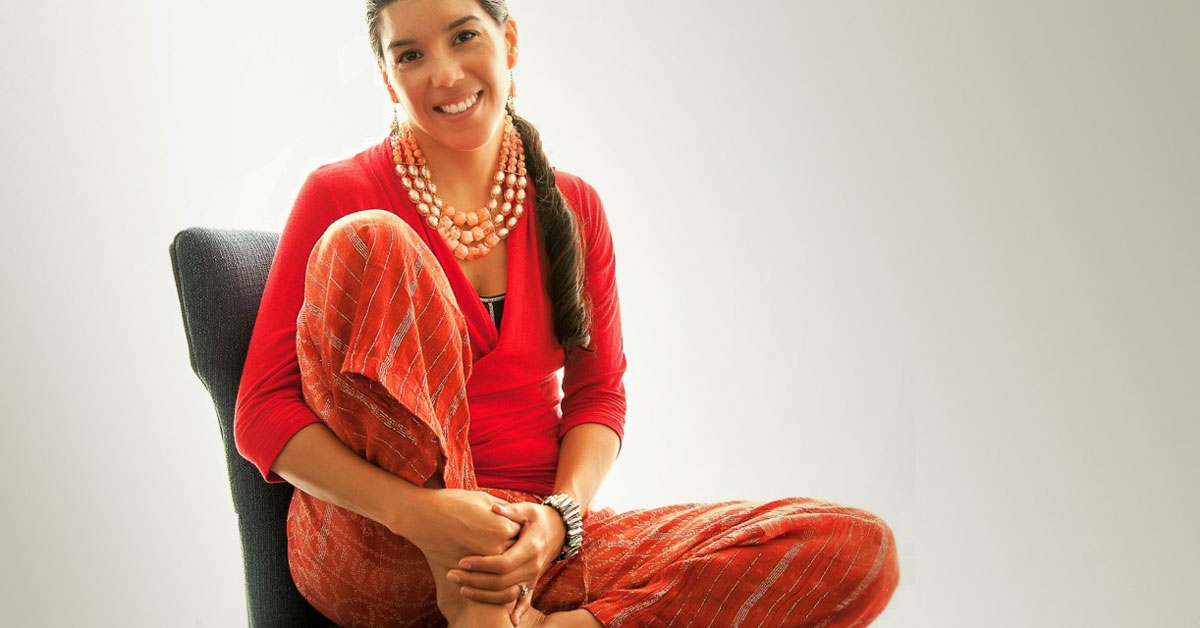Peruvian Brings Yoga to Growing Tampa Neighborhood
Date: April 12, 2017
Lorena Saavedra Smith came to New York City with $300 in her pocket after earning her bachelor’s degree in Peru. While working as a nanny, she took English classes at a community college. Two years later, she got a job as a bilingual marketing representative for a real estate company.

“Little by little, I made my way up,” Smith says. “I was a marketing representative and then a title processor. When it was time for me to do something else, I became a licensed title escrow officer.” In all, she spent a decade in real estate, although she continued to yearn for more.
I believe in humanity, I believe in people, and I believe that when you treat people nice they will eventually treat you back nicer.
For years Smith had practiced yoga to help her cope with depression and stress. The 2007 housing market crash wasn’t easy. So when she and her husband, a U.S. Navy officer, moved to New Tampa, Florida, she took a bold chance on a new career. “I saw that there was opportunity in my own community since there wasn’t a yoga studio,” she says. “And in the back of my mind I always knew that I wanted to have a small business — Why not?”
Smith opened Hanaq Prana Yoga Studio in 2014, to the surprise of some locals. “Back in the day, the modern westernized yoga wasn’t for everybody, and it certainly wasn’t for a person that was my color and looked like me,” she says. Yet she persevered. “One thing I have no fear about is knocking on doors. It’s the old-fashioned, traditional way of working.”
Smith is now one of 2,166 immigrant entrepreneurs in her congressional district and one of 2.9 million immigrant entrepreneurs nationwide. These foreign-born entrepreneurs have become critical job creators in the American economy; in 2007, 5.9 million people were employed at private, immigrant-owned firms. Without immigrants, who are 28 percent more likely to open their own business than are the U.S.-born, the number of Americans employed by small businesses would likely be far lower. Consider that from 1996 to 2011 the rate at which immigrants founded new businesses grew by 50 percent while the rate at which U.S.-born entrepreneurs did so actually declined, by 10 percent.
Today Smith’s studio serves more than 1,500 Floridians and has become a mainstay in the community, bringing yoga education into the schools, public libraries and even to the nearby military base. She just wishes that U.S. immigration policy provided more pathways for other immigrants to launch businesses, as well. The United States currently lacks a startup visa that would make it easy for foreign-born entrepreneurs with a proven idea and funding to remain here, creating missed job opportunities for American workers, as well. Of her own perseverance, Smith says: “I believe in humanity, I believe in people, and I believe that when you treat people nice they will eventually treat you back nicer.”
